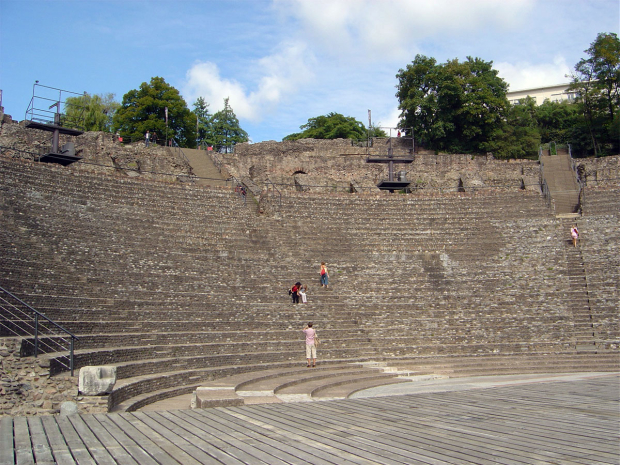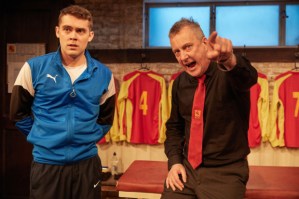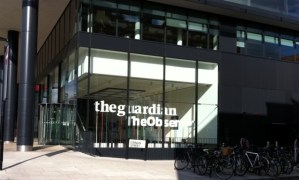Sarah Crompton: What happens when football and the arts collide
With the festival season clashing with a summer of sport, Sarah Crompton talks about her experiences of sport and culture

© Flöschen (CC V2.0)
The other night I found myself sitting on the warm stone seats of a Roman amphitheatre under a dark sky, with an almost full moon shining, at a performance at Les Nuits de Fourvière in Lyon. In front of me, the members of a French theatre company performing a bawdy modern version of Lysistrata by Aristophanes, a comedy about what happens when women go on a sex strike to stop men fighting.
Behind the actors, from the deep bowl of the city, rise the chants of football supporters, punctuated by the occasional siren, celebrating one of the most gripping matches of Euro 2016, the 3-3 draw between Hungary and Portugal which has just ended in the Stade de Lyon. The rumbling sound forms the perfect background to a drama about male machismo and female incomprehension. Football and culture collide.
Les Nuits de Fourvière festival was born in 1946, and sprang from the same spirit of post-war idealism as the Edinburgh International Festival which it in some ways resembles. Both take place in thriving, fascinating cities, both encourage and display a wide range of work from around the world. Les Nuits de Fourvière, however, boasts the magical attraction of performances in two 1st century amphitheatres, one of 4,500 seats and one holding 1,200. Last year, the festival as a whole sold some 200,000 tickets across 12 venues, for events ranging from massive pop concerts to circus to experimental theatre and dance.
The rumbling sound forms the perfect background to a drama
But the thing that has made this year's festival different is the football, filling the city with singing fans of all nationalities who crowd the bars and restaurants. No one yet knows what effect their presence and the fact that local people are perhaps spending more time in front of their televisions will have on ticket sales. But what you see all around you is the way their noisy enthusiasm, the pure thrill of combat that football represents, stands in stark contrast to the more subtle pleasures of art. There is something so decisive about a football championship; it is all win, lose and devil take the hindmost.
Yet for those of us who love football as well as art (an admittedly small subset), big championships often flatten out the personality of the game. I like football not simply because it is exciting, but because – like any great cultural force – it creates heroes, and sometimes villains, and very occasionally those who stand somewhere in between.
I like football not simply because it is exciting, but because it creates heroes
One of those figures was the Brazilian footballer Manuel Francisco dos Santos, known as Garrincha. He played for the national team from 1955 to 1966, winning the World Cup twice; Brazil never lost a match when both he and Pélé were on the pitch. He was one of the greatest dribblers of the ball ever, yet his love of football was matched only by his love of women and alcohol, and he died in poverty and obscurity of cirrhosis of the liver at the age of 49.
It is one of those stories that deserves a play written about it and Sergei Valletti has conjured one called Monsieur Armand dit Garrincha, which simultaneously conjures the free spirit of Garrincha while telling the story of the unknown, third rate Armand, who tells drunken anecdotes about his life.
As directed by Patrick Pineau and as played by Eric Elmosnino (one of France's finest actors, best known for playing Serge Gainsbourg in the film Gainsbourg: A Heroic Life) the play becomes an infinitely funny yet very touching meditation on life, death and hero worship. It's a reminder that while sport makes heroes, art can illuminate their lives. A very satisfactory coming together of football and theatre, and an assertion of why both matter, even if one is rather noisier about saying so.

















